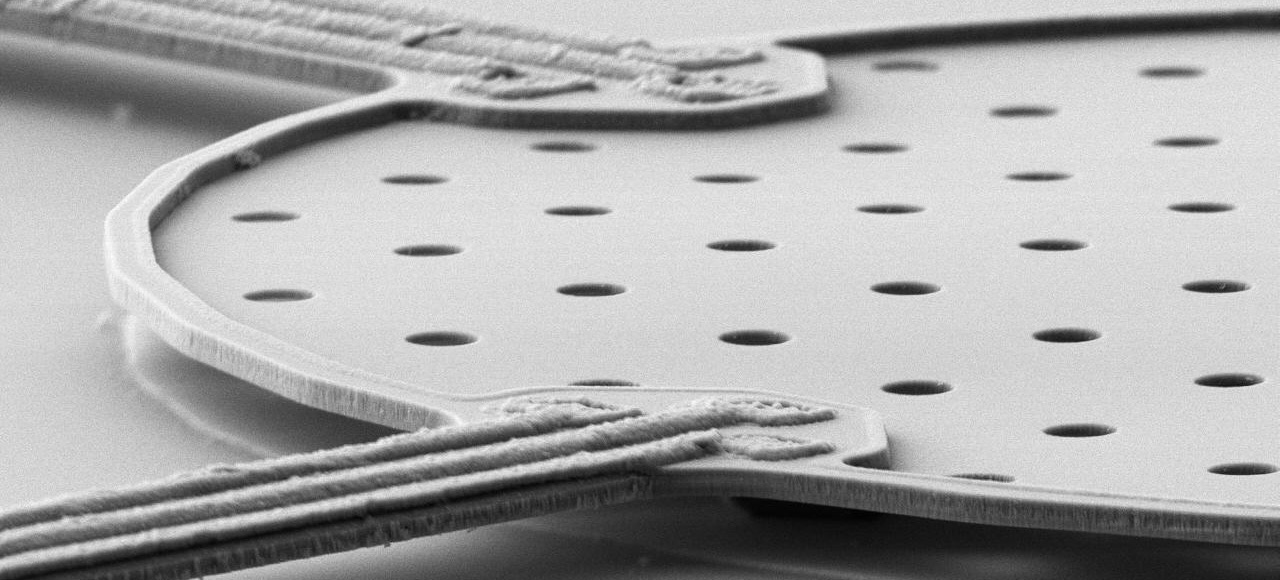- Home
- Research
- Quantum Detection
- Work-Groups
- Thermal Sensors
Thermal Sensors
The scientific focus of the work group „thermal sensors“ is on the research and development of robust, passive photonic sensors based on the thermoelectric conversion principle and hence working self sustaining without external power supply. Research in solid-state physics and materials science for the advancement of highly-effective thermoeletric materials serve as the basis. The sensors are generally designed for uncooled operation at room temperature. However, applications at higher and lower temperatures are also covered. This results in a particular compactness which is essential for many fields of application. The application range extends from visible light (VIS) to the infrared (IR) and the upper terahertz (THz) range with a focus in the IR. Typical sensors exhibit a high linearity across five orders of magnitude. This is particularly relevant for compact spectrometers which possess great potential in life science applications and are used in the environmental, health, and medical fields with particular emphasis on medical technology. In addition, these sensors are predestined for use in space applcations which is reflected in the participation in various space projects:
- ROSETTA (non-contact measurement of the surface temperature of the comet 67P/Churyumov-Gerasimenko),
- MSL (several of Leibniz-IPHT’s TS-100 sensors for the non-contact measurement of the Martian surface temperature on the rover Curiosity),
- BepiColombo (radiometer chip intended to measure both the temperature and the mineralogical composition of the mercury surface),
- Hayabusa II (non-contact measurement of the surface temperature of the Ryugu asteroid, as well as conclusions on the mineralogical composition),
- InSight (non-contact measurement of the surface temperature on the planet Mars and conclusions on the mineralogical composition (HP3-module))
- Mars 2020 (thermal sensors for the MEDA module on the Mars rover Perseverance)
Research topics
- Research, fabrication and advancement of highly effective thermoelectric materials
- Development of highly effective absorber- and emitter-materials and structures
- Photonic detectors with high sensitivity and linearity for uncooled thermal IR- and THz-sensing systems
- Development of tailored thermal sensorsfor applications with special requirements concerning setup, spectral range, sensitivity, robustness and linearity
Areas of application

- Thermoelectric sensor systems with high linearity and sensitivity
- Applications in environmental, health and medical fields as well as space missions
- Pyrometry, NDIR- and dispersive spectroscopy from VIS to IR to THz
